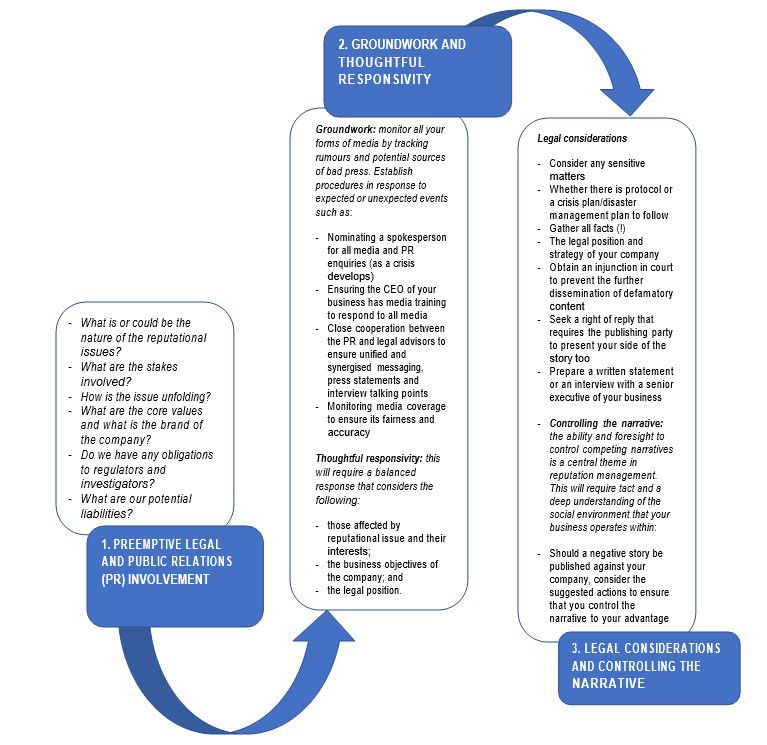In a story widely circulated in the media, Radio Africa Group, a reputable Kenyan media company was confronted with immense social scrutiny following comments made on-air by the hosts of one of the company's popular morning radio talk shows. The comments were deemed, by a significant and vocal segment of their listeners and the public, as being disparaging towards female victims and survivors of sexual violence. There was a further commercial backlash from corporates, including the pausing of all advertising and sponsorship by East African Breweries Limited who were an anchor sponsor of the radio show.
Regulatory sanctions quickly ensued, with the communications regulator, the Communications Authority of Kenya (CAK) slapping the media house with a Kes 1 million fine and a six-month suspension of the controversial talk show. In response to the mounting hostile publicity and the knock-on effect of commercial sponsors and advertisers pulling away, the media house summarily terminated the employment contracts of all the three male hosts involved. The hosts have now moved to court alleging unlawful termination and are suing for substantial damages.
It is not in doubt that the sequence of events highlighted above has instigated important conversations around the value of reputation management for individuals and corporations. The events would have negative reputational implications for any public-facing corporate entity, and, if not properly addressed, further adversely impact their bottom line. This demonstrates the increasing need for timely and proper reputation management. Reputation management is especially pertinent in this age of hyper policing, colloquially referred to as "cancel culture".
Reputational risk ought to be a core business concern. According to the most recent Reputation Dividend findings (the UK 2021 Report), the combined value of reputational assets in Q1 of 2021 across the FTSE350 averaged GBP823 billion of shareholder value (KES 123.4 trillion), which amounted to 33.8% of the FTSE350 combined market capitalisation. These staggering figures provide a strong case for the financial significance of reputation management.
Companies should employ crucial tools and processes in response to media attention, more so when it is damaging, to protect company brands and to highlight company values. Below are three useful tools to apply in safeguarding the reputation of a business should controversies arise.

1. TOOL ONE – PREEMPTIVE LEGAL AND PUBLIC RELATIONS (PR) INVOLVEMENT
Legal and PR teams are essential tools to apply in managing reputational issues that may arise around a business. To properly apply this tool, below are key questions to ask if any reputational issues occur and in the ordinary course of business:
- What is or could be the nature of the reputational issue? (e.g., a social issue such as gender or other protected characteristics, environmental, political, etc.)
- What are the stakes involved? (e.g., what is the monetary cost of this reputational risk actualising?)
- How is the issue unfolding? (i.e., what is the dominant perspective?)
- What are the core values and what is the brand of the company? (this will help align your response to the essence of what your business stands for)
- Do we have any obligations to regulators and investigators? (e.g., for regulated industries, the CAK, the Capital Markets Authorities (CMA), etc.)
- What are our potential liabilities? (e.g., any stakeholders who could sue your company, the loss of advertising and funding or sponsorships)
Pre-emptively answering these questions will ensure that your business is prepared and confident in its ability to provide a successful response to a reputational crisis. Utilise your legal and PR teams early on to help guide your answers to these key questions.
2. TOOL TWO – GROUNDWORK AND THOUGHTFUL RESPONSIVITY
Groundwork
Your Communications department should keenly monitor all your forms of media by tracking rumours and potential sources of bad press. Be sensitive to the specific times and how bad press may impact your business. Specific times may include the moment before publication of financial results, executive bonuses information and pay-outs, or before and during high profile legal proceedings.
Consider potential crises that may be foreseeable and predictable in your industry and establish procedures in response to expected or unexpected events. Such procedures may involve:
- Nominating a spokesperson for all media and PR enquiries (as a crisis develops)
- Ensuring the CEO of your business has media training to respond to all media
- Close cooperation between the PR and legal advisors to ensure unified and synergised messaging, press statements and interview talking points
- Monitoring media coverage to ensure its fairness and accuracy
Thoughtful responsivity
This will require a balanced response that considers the following:
- those affected by reputational issue and their interests;
- the business objectives of the company; and
- the legal position.
It is critical to resist deferring to orthodox PR approaches which say tell it all, quickly and truthfully, nor deferring to the traditional legal approach which refuses to comment, denies liability, and shifts blame. Rather a medium of these approaches must be met to avoid damaging the reputation, goodwill, and share value of the company and to avoid protracted legal liabilities.
3. TOOL THREE – LEGAL CONSIDERATIONS AND CONTROLLING THE NARRATIVE
Legal considerations
To manage the media, ensure that you:
- Consider any sensitive matters (e.g., privacy, confidentiality, etc.)
- Whether there is protocol or a crisis plan/disaster management plan to follow
- Gather all facts (!)
- The legal position and strategy of your company
- If possible (and appropriate) whether you can negotiate avoiding the publication of a story or video or whatever the crisis is
If you cannot prevent press publications after negotiations, below are legal actions and other considerations:
- Obtain an injunction in court to prevent the further dissemination of defamatory content
- Seek a right of reply that requires the publishing party to present your side of the story too
- Prepare a written statement or an interview with a senior executive of your business
Controlling the narrative
The ability and foresight to control competing narratives is a central theme in reputation management. Should a negative story be published against your company, consider the following actions to ensure that you control the narrative to your advantage. This will require tact and a deep understanding of the social environment that your business operates within. The actions are as follows:
- Preventively publish an article, report, or statement through a press house that is friendlier to your business to counter the bad press
- Write a legal response within 24 hours of publication of a negative story
- Find evidence to challenge the accuracy of the published story and as proof for damages
- Demand an apology, clarification, damages, or legal costs as applicable
- Appoint a spokesperson to handle further queries and present a strong position of your business as regards the crisis at hand
- File a complaint to the relevant industry regulator (e.g., the Media Council of Kenya, CAK, Kenya Film Commission, CMA, etc.)
- Institute legal proceedings (bearing in mind the pros and cons of this which include damages and costs recovery, the vindication of a reputation publicly, but may also be expensive and attract more attention to the bad press)
Crisis prevention and management is integral to the reputation of a business, its brand, and its values. By implementing these three tools you will strategically position your business to respond, not react, to crisis if and when it comes.
Originally Published 22 April, 2021
The content of this article is intended to provide a general guide to the subject matter. Specialist advice should be sought about your specific circumstances.


